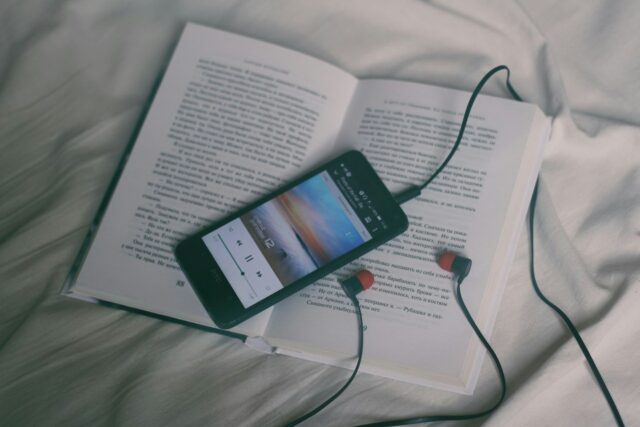Mornings can be rough for some people, and waking up at 5 a.m. raring to go is definitely not everyone’s cup of tea.

However, there are a lot of benefits to being an early riser. Not only does it make getting out the door for work a little less painless, but it can make your mornings less hectic and rushed. If you only manage to drag yourself out of bed after hitting snooze half a dozen times, here are some ways to change up your routine for the better.
1. The reverse alarm actually works.

Ever noticed how you’ll wake up just before your alarm when you’re excited about something? Try setting two alarms — one for your actual wake time and another 15 minutes earlier. Your brain starts anticipating that first alarm, often waking you naturally. You’ll feel more alert than being yanked awake by a single alarm, plus you’ve got a backup if needed. It’s like having a built-in snooze button that actually makes you feel better instead of worse.
2. Temperature hacking beats willpower.

Keep your bedroom cool at night, but set your thermostat to warm up about 30 minutes before wake time. Your body naturally wants to wake when temperature rises. This subtle change triggers your internal clock without the jarring effect of an alarm. It’s like creating your own sunrise, minus the expensive wake-up light. Think of it as tricking your body into thinking summer morning sunshine is streaming through your windows.
3. The three-item counter reset helps your brain boot up.

Instead of reaching for your phone, name three things you can see, hear, and feel right now. Your night stand lamp, the neighbour’s dog, the soft blanket. This quick mental exercise engages your senses and helps your brain transition from sleep mode more smoothly than scrolling through notifications. Plus, it keeps you from falling into that social media rabbit hole that somehow turns five minutes into thirty.
4. Moving your clothes actually changes your behaviour.

Lay out tomorrow’s outfit somewhere you’ll have to walk to, not right by your bed. This forced movement, even just across the room, raises your heart rate enough to help shake off morning grogginess. The physical action breaks that magnetic pull your bed seems to have. Once you’re up and moving, you’ve already won half the battle against morning inertia.
5. Water placement matters more than you think.

Keep water by your bed, but make it room temperature. Ice water first thing can shock your system and make your body resist hydrating. A few sips of room temp water helps your body restart natural processes without fighting against them. Consider it the gentlest way to wake up your digestive system after its nighttime break.
6. Delaying caffeine resets your tolerance.

Wait 90 minutes after waking for your first coffee. Your cortisol peaks naturally about an hour after waking, so adding caffeine then actually reduces its effectiveness. Letting your natural energy kick in first means you’ll need less caffeine overall. You might even find yourself naturally cutting back on coffee without even trying.
7. Light exposure timing changes everything.

Get outdoor light within 10 minutes of waking, even if just standing by a window. Morning light exposure sets your circadian rhythm better than any app or supplement. Your eyes’ photoreceptors need real daylight to signal your brain it’s go-time. Even on cloudy days, natural light is substantially brighter than indoor lighting and makes a huge difference to your energy levels.
8. Decision stacking prevents morning paralysis.

Make your first three morning decisions the night before. What to wear, what’s for breakfast, and your first task of the day. This removes the mental load when you’re most vulnerable to decision fatigue. You’re essentially borrowing willpower from your evening self. Think of it as setting up dominoes that will effortlessly fall into place the next morning.
9. The texture transition eases you awake.

Start with something soft and gradually introduce different textures — smooth coffee cup, rough towel, cold floor tiles. This progressive sensory input helps your brain process waking up more naturally than immediate harsh stimuli. It’s like giving your senses a gentle warm-up routine rather than jumping straight into a sensory sprint.
10. Sound layering beats abrupt noise.

Start with white noise, then nature sounds, then finally music or news. This gradual sound transition is less jarring than switching straight from silence to information or complex music. Your brain appreciates the warm-up. You’ll find yourself naturally tuning into the day’s rhythm instead of feeling sonically ambushed.
11. Muscle memory shortcuts actually work.

Create a specific pattern of morning movements — same bathroom route, same coffee-making sequence. Your body will start running on autopilot, conserving mental energy for more important decisions. This isn’t about rigid routine, but about reducing unnecessary thought. Before you know it, you’ll be halfway through your morning routine before your brain even realises it’s awake.
12. Empty space creates morning momentum.
 Source: Unsplash
Source: Unsplash Clear your bathroom counter, kitchen counter, and entryway the night before. Starting your day in clean spaces reduces visual noise and mental clutter. Your environment shapes your first thoughts more than most realise. Walking into a tidy space first thing gives your brain that subtle signal that today is a fresh start.
13. The five-minute buffer changes everything.

Add five minutes between your planned wake time and your first commitment. This isn’t extra sleep time — it’s a buffer for reality. Having this pocket of flexible time reduces morning stress more than waking up earlier ever could. It’s amazing how such a small time cushion can make the difference between feeling rushed and feeling ready.




